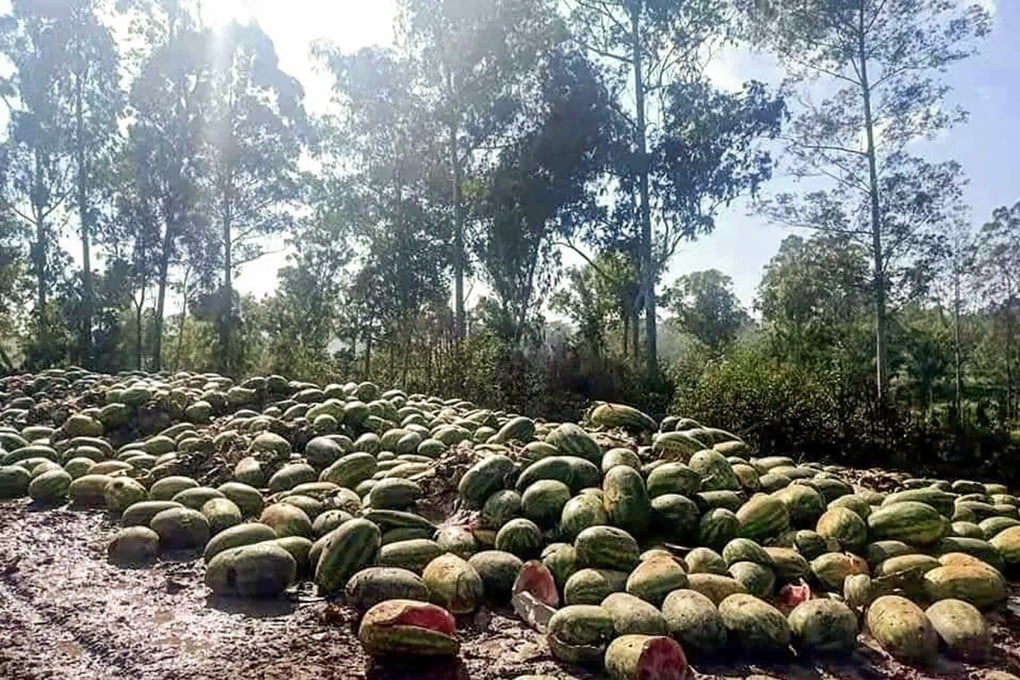Rotting fruit, sinking fortunes – Covid-19 curbs take their toll on China’s Myanmar border
- Trade in perishables ‘nearly impossible’, exporters in Myanmar say as trucks waiting to clear border checkpoints jam major roads
- On the Chinese side, prolonged lockdowns leave hotel and business owners in despair ahead of the lucrative Lunar New Year tourist season

“Before the pandemic, we used to export more than 500 truckloads of fruit daily to China, mainly tropical fruits like watermelon, honeydew melon, mango, and so on. Now, fewer than 10 trucks can cross the border daily,” said Lee Htay, a 65-year-old transport company owner.
Business is only just coming back to life after five months of pandemic-related border closures, with China reopening a major road link at the town of Wanding in Ruili on November 26. But a painfully slow clearance process on either side has left exporters frustrated.
“We have to find ways to export to other countries or sell in the local markets, but those take time,” Lee said. “In most cases, we just have to throw the melons away.”
At least 200 trucks loaded with fruit are still stuck on the road from Myanmar’s second largest city of Mandalay to the border town of Muse, the main road link to Wanding and Jiegao in Ruili on the Chinese side, he said.
